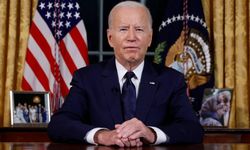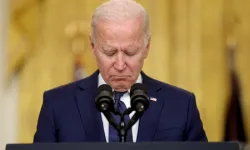The coup, led by Colonel Mamadou Bamba on September 30, 2023, announced on state television that it had dissolved the government and the National Assembly and established a new military council, the National Council for Democracy (CND). Bamba claimed that the coup was necessary to "restore order and stability" and "protect the democratic process", which he said was threatened by the exclusion of some candidates in presidential and parliamentary elections scheduled for October 11, 2023.
The coup was met with widespread resistance and protest by civil society, political parties, regional and international organizations and the international community. The Economic Community of West African States (ECOWAS), the African Union (AU) and the European Union (EU) issued a joint statement condemning the coup as a "serious attack on the transitional process" and demanding the immediate release of interim president Michel Kafando, prime minister Isaac Zida and other government officials detained by the coup plotters.1 They also called for the restoration of constitutional order and respect for the electoral calendar.
The United States, a key partner and supporter of Burkina Faso's democratic transition, also expressed its deep concern and condemnation of the coup. In a press statement issued by US State Department Spokesperson Ned Price, the US "notes that for the second time in eight months, the military has claimed to have dissolved the government and National Assembly and suspended the constitution" and that the US "joins its partners in ECOWAS, the AU and the EU in condemning these actions and the ongoing violence that jeopardizes the agreed timetable for a return to a democratically elected, civilian-led government." Price also called on those responsible to de-escalate the situation, prevent harm to citizens and soldiers, and return to constitutional order. Price added that the United States is "closely monitoring this fluid situation and calls on all actors to exercise restraint" and that the United States "stands with the people of Burkina Faso in their aspirations for democracy, peace, development and respect for human rights."
The U.S. Embassy in Burkina Faso also issued a security alert, advising U.S. citizens to avoid travel to the country, stay put, and follow local media for updates2. The embassy also suspended consular services and urged U.S. citizens to register with the Smart Traveler Enrollment Program (STEP) to receive alerts and assistance from the embassy.
The situation in Burkina Faso has generated much interest and reaction on Twitter, with users expressing solidarity, anger and hope for the people of Burkina Faso. Others criticized the role of former colonial powers France and the United States in the region, accusing them of supporting the coup or interfering in the country's internal affairs. Here are some of the tweets reflecting the mood:
"I stand with the people of Burkina Faso as they fight for their democracy and freedom. The military coup is unacceptable and must be reversed.
"The coup in Burkina Faso is a reminder that democracy is fragile and must be defended. The international community must support the transitional government and the electoral process.
"The coup in Burkina Faso is the result of interference and manipulation by France and the United States, who want to protect their influence and interests in the region. They are the real enemies of the Burkina Faso people.
Burkina Faso, which means "the land of the upright people" in the local language, has a history of political instability and military coups. The country gained independence from France in 1960 and has since experienced six coups, most recently in November 2014, when popular protests toppled longtime president Blaise Compaoré, who had ruled the country for 27 years. A transitional government led by Kafando and Zida was established to oversee the transition to a new democratic regime and organize free and fair elections. However, the coup of 30 September 2023 jeopardized this process and plunged the country into a new crisis.













